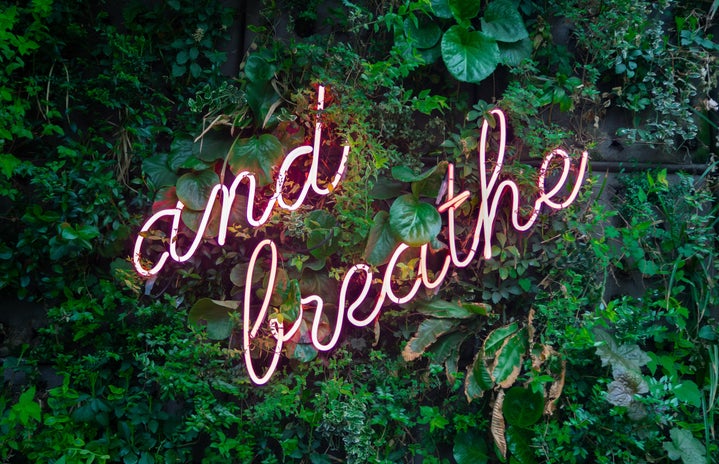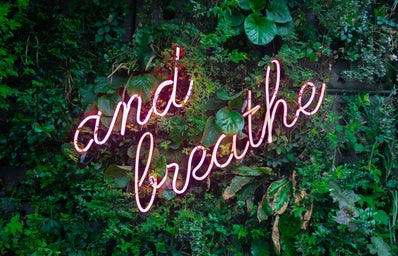The simplest way to describe mindfulness is by dedicating our full attention to a present moment and thing. Being mindful means taking the time to slow down and really notice what we are doing. The goal is to not feel overwhelmed by the world during this time of solace, but rather to focus on self-reflection by avoiding judgment and keeping an open mind to the process. This may sound like a silly concept, and with a life that is constantly moving at exorbitant speeds, it may even feel impossible. But practicing mindfulness can improve our mental health as we begin to become more aware of our feelings and thoughts. Often our thoughts are based on the past or future, so mindfulness allows us to think in the present and helps us manage them better instead. All in all, mindfulness takes the form of meditation, which can be easily learned and followed at any desired pace.
When kicking off a mindfulness journey, it is important to know that it is not a one-time thing, but rather something that can be learned over time. An analogy can be used to help understand mindfulness — think of attention to be like a muscle —muscles can not become stronger without consistent physical activity. In other words, our muscles that focus on attention can not grow without practice either! Starting has its challenges and can be a difficult thing to grasp, but here are some simple tips and tricks to help begin the journey.
- Pay attention
Pay attention! — It’s easy to let our mind wander to upcoming assignments and due dates or even dwell on thoughts that relate to the past or future. If this happens, we can allow ourselves to refocus on the environment around us and truly take in the full experience. This can be done by connecting with the five senses: touch, sight, sound, smell and taste. The senses act as an anchor during mindfulness and can be referenced in times of stress.
- Accept and live in the present moment
Acceptance is key to mindfulness because when we are able to see things as they are in our lives such as knowing we can not change the actions of others but only better ourselves, peace of mind will follow. Our minds tend to hang on to certain emotions, thoughts or memories that are not particularly pleasant. Letting go and experiencing things as they are is not easy. But, if I am stuck on something, such as receiving a bad grade at school, I tend to remind myself that this is a learning experience of which I understand I can better myself in the process once I allow acceptance into my life.
- Have patience and be non-judgmental
Being patient teaches us to understand that things come in their own time. Mindfulness is not a process that can be rushed. Acknowledging that it will take a while and being impartial to the exercise in a non-judgemental way allows for an open and peaceful mind when commencing a mindfulness journey. Don’t judge the feelings and thoughts that arise. We must not judge ourselves for not being able to focus for very long. Once we do these things, we can fully immerse ourselves in the present moment without assessment or interpretation. The ultimate goal is to be one with our minds.
I will leave us off with a mindful breathing meditation. It is used to ground ourselves, control our breathing and relieve stress. It is a basic, yet powerful, practice, where the main idea is to pay attention to our breathing. In this exercise, we will concentrate on its natural rhythm and flow with each inhale and exhale. Overall, focusing on breathing can aid if we start to feel stressed or overwhelmed by troublesome emotions or thoughts. With time, practice, and, most importantly focus, we will become masters at mindfulness and our own minds.


